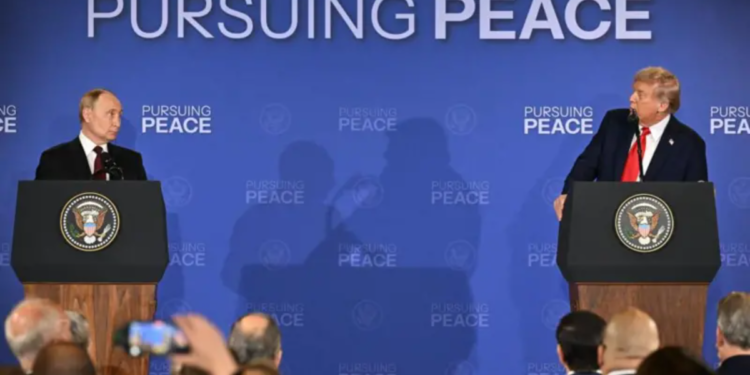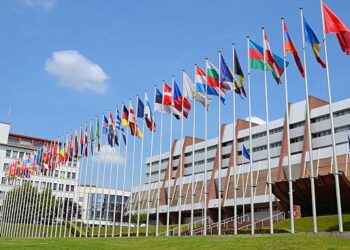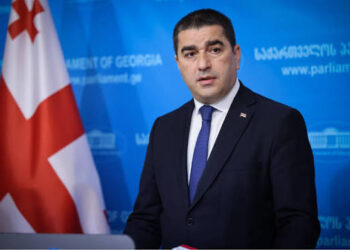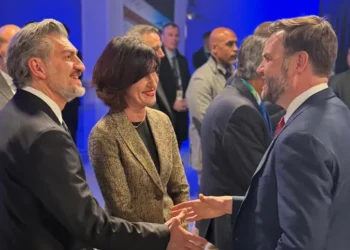Yesterday’s summit between Donald Trump and Vladimir Putin in Alaska has drawn intense international scrutiny, with reactions ranging from cautious optimism to outright condemnation. While the meeting marked a significant geopolitical moment—bringing the two leaders together for the first time since Trump’s re-entry into the political spotlight—it ended without any formal agreement on a ceasefire in Ukraine, much to the disappointment of European allies and Ukrainian officials.
Russia has hailed the summit as a diplomatic victory. With no new sanctions announced and no immediate pressure for a ceasefire, the Kremlin appeared satisfied with the outcome. Putin left Alaska with a strengthened international posture, bolstered by Trump’s apparent willingness to adopt the Kremlin’s framing of the conflict as one that needs a comprehensive peace settlement rather than incremental steps like ceasefires. Russian state media celebrated the event as a turning point in restoring Moscow’s global influence.
In contrast, European leaders expressed deep concern. German and Baltic officials were particularly critical, emphasizing that the summit failed to yield any concrete progress for Ukraine and, in doing so, effectively rewarded Russian aggression. Lithuania’s defense minister accused Putin of using manipulative rhetoric to mask continued violence, while Czech and Norwegian officials stressed the importance of maintaining firm pressure on Moscow. In Poland, Prime Minister Donald Tusk warned “the game for Ukraine’s future, Poland’s security, and all of Europe has entered a decisive phase” and Putin has “again proven to be a cunning and ruthless player.” Across the EU, there was a shared sentiment that the meeting undermined Ukrainian sovereignty and gave Putin diplomatic breathing room without meaningful concessions.
Within the United States, the response split along familiar partisan lines. Republican figures praised Trump for engaging diplomatically, with some—like Senator Lindsey Graham—holding out hope that a broader peace initiative might still emerge, possibly including a trilateral meeting with Ukraine before the end of the year. Meanwhile, Democrats sharply criticized the president’s approach, with Senator Jeanne Shaheen accusing Trump of embracing a “murderous dictator,” and other lawmakers questioning whether the summit weakened the West’s united front against Russian aggression. Some former intelligence officials went further, suggesting Trump’s conduct verged on capitulation.
Human rights voices added a more personal dimension to the critique. Ukrainian Nobel laureate Oleksandra Matviichuk warned that the human cost of the war risks being forgotten in these high-level political maneuvers. “What will happen to the tens of thousands illegally detained citizens, men and women, and prisoners of war… this question is very urgent,” she told the BBC. Matviichuk stressed the need to return the “human dimension” to the peace process and expressed skepticism about Trump’s promises, remarking, “As a candidate for president, [he] said that he would finish this war in 24 hours. This is the longest 24 hours in history.”
Amid the fallout, attention is now turning to Kyiv. Ukrainian President Volodymyr Zelensky is scheduled to visit Washington on Monday, where he will meet with Trump to discuss the next steps. Zelensky has cautiously supported the idea of a comprehensive peace deal, but insists that Ukraine must not be sidelined. He has also called for robust European involvement to ensure that any agreement provides real security guarantees for his country. For Ukraine, this visit is seen as critical—an opportunity to reassert its voice in negotiations that, so far, have too often spoken about Ukraine without Ukraine.
Whether the summit ultimately marks the beginning of a new diplomatic chapter or merely a reshuffling of narratives remains to be seen. But for now, the divide in international response—between those celebrating symbolism and those lamenting substance—underscores how fragile the path to peace remains. All eyes are now on Washington, where Zelensky’s presence may either inject urgency into the process or expose further rifts in the global response to the war.














